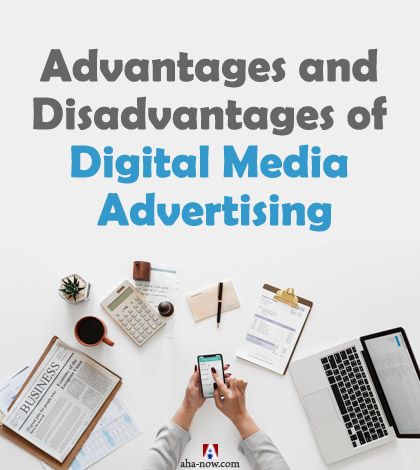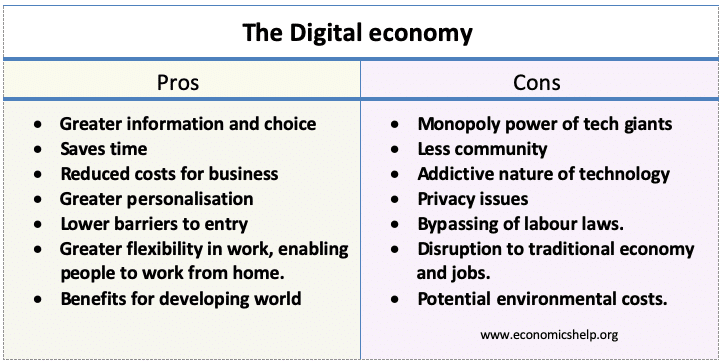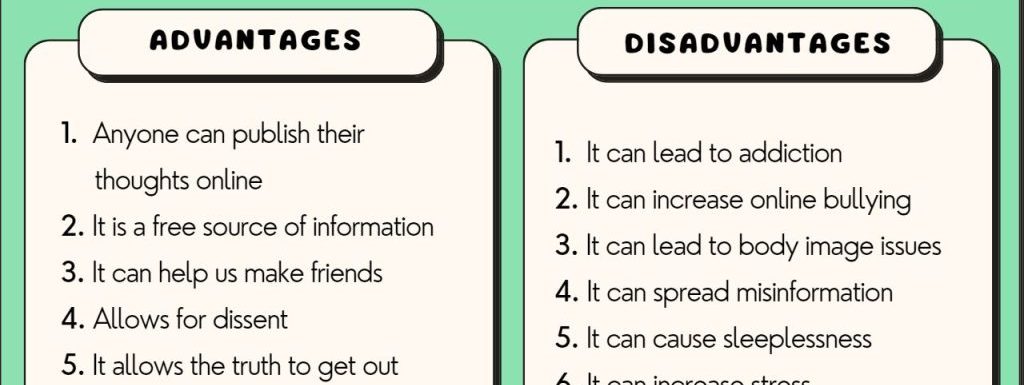The pros of digital media include instant accessibility, global reach, and interactive features, while the cons involve information overload, privacy concerns, and potential addiction. In today’s digital age, digital media has become an integral part of our lives, shaping how we consume and share information.
With just a few clicks, we can access a vast amount of information from anywhere in the world, opening up a world of possibilities for learning, entertainment, and communication. Furthermore, digital media allows us to actively engage with content through interactive features like commenting, sharing, and liking.
However, with the abundance of information available, we may easily become overwhelmed and struggle with managing our time efficiently. Additionally, privacy concerns have emerged, as our digital footprints can be tracked and our personal data can be exploited. Lastly, the addictive nature of digital media can lead to excessive screen time and adverse effects on mental and physical health. Overall, digital media presents both opportunities and challenges in our modern society.

Credit: www.aha-now.com
Table of Contents
Pros Of Digital Media
Digital media has revolutionized the way businesses connect with their target audience. It offers a plethora of advantages that can significantly impact communication, marketing, and overall brand visibility. Let’s explore the various benefits of incorporating digital media into your business strategy.
Wide Reach
One of the foremost advantages of digital media is its ability to reach a wide audience. With the power of the internet, businesses can connect with a global audience without geographical limitations. This opens up opportunities to expand brand recognition and engage with diverse demographics that traditional media may not reach.
Moreover, social media platforms and online advertising offer precise targeting options, ensuring that your content reaches the right audience at the right time.
Interactivity
Digital media fosters interactive communication. It allows real-time engagement and feedback from the audience, creating a dynamic and two-way relationship. Interactive elements such as polls, surveys, and live streaming enhance user experience and encourage active participation, ultimately leading to better brand-consumer connections.
The interactive nature of digital media promotes personalized experiences for consumers, enabling businesses to tailor their content and offerings based on audience preferences and behaviors.
Cost-effective
Compared to traditional media, digital media offers cost-effective solutions for advertising and marketing. Online platforms provide targeted advertising options, allowing businesses to allocate their budget more efficiently and measure the effectiveness of their campaigns through analytics tools.
Additionally, the ability to create and distribute content at a relatively low cost enables businesses to maintain an active online presence without excessive financial burden.

Credit: www.facebook.com
Cons Of Digital Media
In this digital age, where technology is omnipresent, digital media has become an integral part of our daily lives. However, it is important to acknowledge that digital media also comes with its fair share of drawbacks. In this section, we will explore some of the cons associated with digital media, including information overload, privacy concerns, and the digital divide.
Information Overload
One of the significant downsides of digital media is the overwhelming amount of information that is readily available at our fingertips. With the proliferation of online platforms, social media, and websites, we are continuously bombarded with a never-ending stream of data. This inundation can be quite daunting and can lead to what is commonly referred to as “information overload.”
This constant flow of information often makes it challenging to filter out the relevant and reliable content from the noise. As a result, individuals may feel overwhelmed, confused, and unable to focus on what truly matters. Moreover, with the rise of fake news and misinformation, it becomes crucial for users to exercise critical thinking skills to discern fact from fiction.
Privacy Concerns
An area of concern in the realm of digital media is the issue of privacy. As we immerse ourselves in the digital world, we leave behind digital footprints that can be tracked, analyzed, and potentially exploited by various entities. From government surveillance to data breaches and targeted advertising, the erosion of privacy is a prevalent downside.
With the advent of social media platforms and online services, our personal information is often collected, stored, and used for targeted marketing or even sold to third parties without our explicit consent. This intrusion into our personal lives can lead to feelings of vulnerability and a loss of control over our own data. Protecting our privacy in the digital age requires constant vigilance, awareness of privacy settings, and understanding the implications of sharing personal information online.
Digital Divide
The digital divide refers to the disparity in access to digital technologies and information between different individuals, communities, or regions. While the internet has become an essential tool for communication, education, and employment, not everyone has equal access to these opportunities. This digital divide can create barriers and exacerbate existing inequalities.
Those without access to digital media and the internet may face limitations in terms of educational resources, job opportunities, and connectivity with others. This gap can perpetuate social, economic, and educational disparities between individuals and communities. Bridging the digital divide requires efforts on multiple fronts, including expanding infrastructure, providing affordable internet access, and promoting digital literacy programs.
In conclusion, while digital media offers numerous advantages, it is crucial to recognize the cons associated with it. Information overload, privacy concerns, and the digital divide pose challenges that necessitate our attention and efforts to mitigate their negative impacts. By addressing these drawbacks, we can harness the benefits of digital media while striving for a more inclusive and balanced digital landscape.

Credit: www.economicshelp.org
Frequently Asked Questions For What Are The Pros And Cons Of Digital Media
What Are The Main Advantages Of Digital Media?
Digital media offers real-time audience engagement, wide reach, cost-effectiveness, and measurable analytics.
How Does Digital Media Influence Consumer Behavior?
Digital media informs, persuades, and influences purchasing decisions through personalized content and interactive experiences.
What Are The Downsides Of Relying Solely On Digital Media?
Over-reliance on digital media may lead to information overload, privacy concerns, digital fatigue, and online security risks.
Conclusion
Digital media offers unparalleled reach and engagement opportunities, allowing businesses to connect with a wider audience. However, it also presents challenges regarding privacy and information overload. Understanding the pros and cons of digital media is crucial for effective utilization. Balancing its advantages and limitations can lead to successful and impactful digital marketing strategies.

Leave a Reply